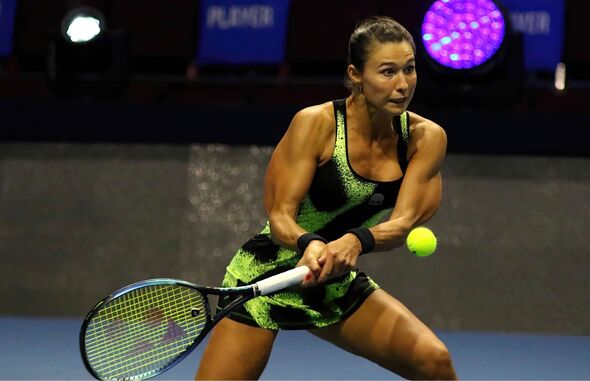The glittering world of professional tennis often presents an image of relentless athleticism, Grand Slam glory, and lucrative endorsements. Yet, beneath this polished surface lies a complex, often challenging reality, particularly concerning the vital lifeline of sponsorship. Former world No. 71, Vitalia Diatchenko, has recently pulled back the curtain on this lesser-seen aspect, offering a stark and honest account of her journey to find financial backing – or rather, her principled refusal of many of its more unsavory forms.
The Crucial Role of Sponsorship in Professional Tennis
For aspiring athletes, especially those outside the sport`s absolute elite, securing sponsorship is not a luxury but a necessity. It’s the engine that covers the astronomical costs of travel, coaching, equipment, and tournament entries, turning raw talent into a viable career. Diatchenko, a formidable player known for her powerful game, found herself navigating a landscape rife with proposals that often felt more like exploitation than genuine support.
Unfavorable Financial Terms and Principled Refusal
“Many offers, all unsuccessful,” she recounted, painting a clear picture of the typical challenges. The common thread? Demands for a substantial percentage of her hard-earned prize money in exchange for what often amounted to minimal upfront sums or the mere coverage of travel expenses. Having dedicated her formative years to the sport with her parents` unwavering support, the idea of surrendering a significant portion of her earnings seemed counterintuitive and, frankly, unjust.
“Why give away percentages when I`ve done all the hard work with my family?” Diatchenko mused, highlighting a common sentiment among independent athletes who have sacrificed immensely to reach their professional peak.
She emphasized a desire for “normal help,” akin to what athletes might find in well-structured sponsorship programs in Europe – support that facilitates a career without demanding an unfair pound of flesh.
The Shadowy Side of “Support”: Beyond the Baseline
What truly sets Diatchenko’s narrative apart, however, is her revelation of a darker, far more disturbing category of proposals. She explicitly stated that “girls operate differently” in the sponsorship world, a poignant phrase hinting at pressures and expectations far removed from the tennis court. When pressed, she confirmed receiving offers from public figures, including “oligarchs,” that veered sharply away from professional athletic development.
These were not subtle hints. Diatchenko described direct propositions to relocate, reside in specific places – hypothetically, Monaco – and implicitly, or even explicitly, abandon her singular focus on tennis. “It became clear what direction it was going,” she stated with disarming frankness, adding, “I said goodbye.” The implication was chillingly clear: these were not offers for athletic advancement, but for a lifestyle where tennis would likely be secondary, if it existed at all. Her response to such audacious proposals? “What nonsense!” she recalled thinking, perfectly capturing the absurdity and indignity of the situation.
Integrity Unshaken: A Powerful Statement
Despite the immense financial pressures inherent in professional sports, Diatchenko’s integrity remained unshakeable. She pointed out that these unsolicited proposals came to her; she never sought them. Her unwavering commitment to her sport and personal values meant rejecting opportunities that, while offering a semblance of financial stability, would profoundly compromise her independence and dignity.
“I`m not sure these people would have given me the chance to play,” she reflected, sagely questioning the true intent behind such “generosity” – a rather polite way of suggesting their motives were anything but altruistic.
Broader Implications for Women in Sports
Diatchenko`s story is not an isolated incident. It casts a stark spotlight on systemic challenges within sports sponsorship, particularly for female athletes who may face additional, inappropriate expectations. It forces a critical examination of the power dynamics at play when aspiring talents, often young and vulnerable, seek support from wealthy individuals or corporations. The unspoken costs can extend far beyond a percentage of prize money, impacting an athlete`s mental well-being, personal autonomy, and ultimately, their career trajectory.
The Path Forward: Championing Ethical Support
Her experience underscores the urgent need for greater transparency, stronger ethical guidelines, and robust support systems within professional sports. It highlights the importance of organizations that genuinely champion athlete welfare and development, ensuring that financial backing comes without compromising an athlete`s integrity or their sole dedication to their craft. Vitalia Diatchenko`s candidness serves as a powerful reminder that true success in sports isn`t just measured by titles, but by the unwavering commitment to one`s self and one`s passion, even when faced with the most tempting, and troubling, of offers. It`s a call to arms for a cleaner, more respectful approach to nurturing talent in the demanding world of professional tennis.

